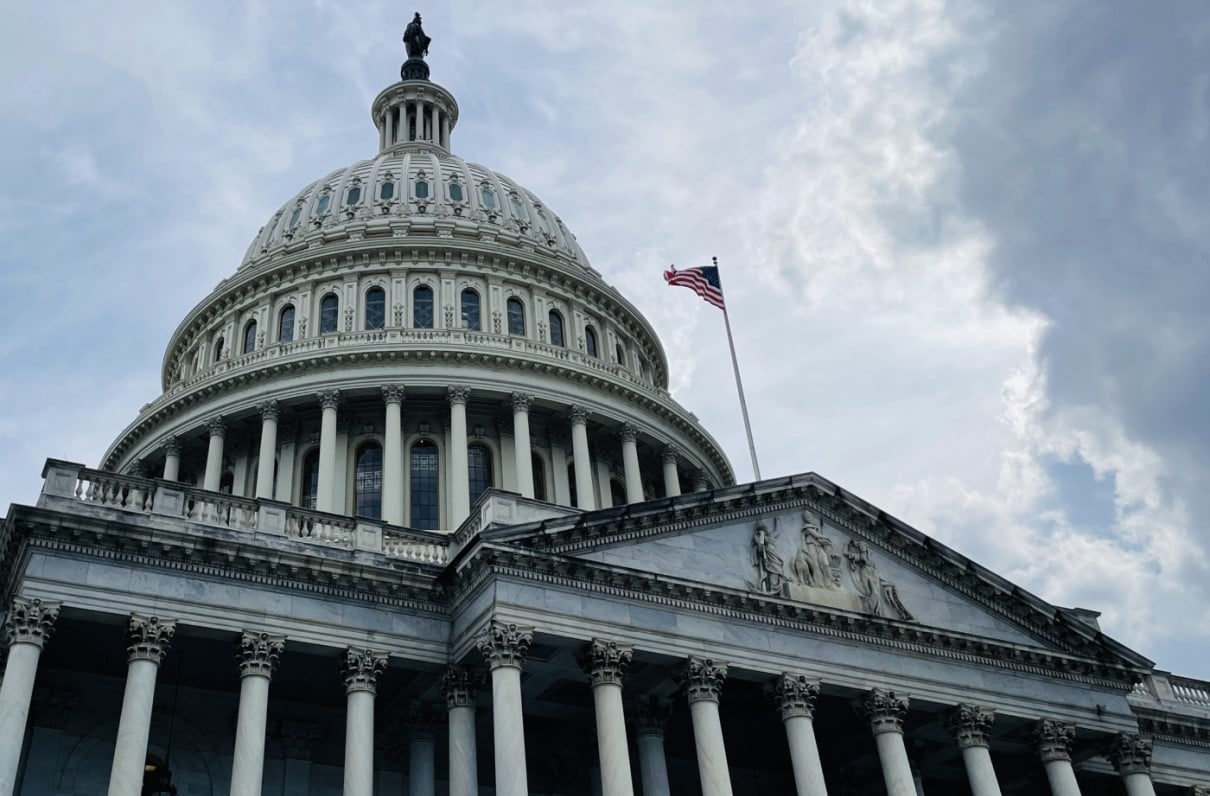Update: A 45-day continuing resolution became law Sept. 30, keeping the government funded through mid-November. Send a message through MOAA's Legislative Action Center and tell your lawmakers to finish the budget process and ensure servicemembers are paid should a deal not be reached.
Get the latest updates from MOAA on the budget process via our Advocacy News page, or by subscribing to the weekly edition of The MOAA Newsletter.
As the start of a new fiscal year draws closer with no agreement in place to fund the government, servicemembers, veterans, and their families face uncertainty, financial stress, and an erosion of trust in the government – all during a recruiting crisis for the all-volunteer force.
“Military members and their families volunteer and are honored to serve and make the needed sacrifices, but they don’t and should not expect to sacrifice their financial security,” said Lt. Gen. Brian T. Kelly, USAF (Ret), MOAA president and CEO. “The all-volunteer force is the backbone of our nation’s national and economic security. We depend on them and hold them accountable -- which they embrace – and they want and deserve the same dependability and accountability from the elected members of Congress who are charged with supporting them.”
[TAKE ACTION: Urge Your Elected Officials to Support the Pay Our Troops Act]
MOAA continues its work on behalf of all who serve, and needs your help on both short- and long-term messaging to Congress to address this ongoing funding problem. Here’s what you should know as Sept. 30 inches closer.
Shutdown Watch
If the 12 annual appropriations bills making up the federal budget aren’t passed by the end of the fiscal year, and if Congress does not pass a continuing resolution (CR) to extend last year’s spending levels, there will be at least a partial federal shutdown. This would be detrimental to our nation’s national security, to members of the uniformed services and veteran communities, and to the millions of other federal employees.
Some essential services will continue during the funding lapse – most VA benefits would remain available, for example, and DoD military retiree and Survivor Benefit Plan (SBP) payments will continue unaffected, according to Defense Finance and Accounting Services (DFAS) spokesman Steve Burghardt, as will payments to Coast Guard retirees and survivors, according to CW4 Bob Hinds, USCG (Ret), manager of the Coast Guard Retiree Services Program.
However, while Congress has carved out exceptions for continued military pay in past shutdowns, they had yet to do so as of Sept. 27.
That’s why MOAA is asking members to contact their elected officials today and ask them to support the Pay Our Troops Act, introduced by Rep. Jen Kiggans (R-Va.), and other similar legislation, which would protect servicemember pay during a funding lapse.
“Government shutdowns and uncertainty of pay and benefits directly contribute to our current recruiting crisis,” Kelly said. “The Pay Our Troops Act would directly support stability for servicemembers and their families.”
Kiggans’ bill, and other similar legislation, also provides pay protection for Coast Guard members. MOAA also supports the bipartisan Pay Our Coast Guard Parity Act (H.R. 2693), introduced by Reps. Hillary Scholten (D-Mich.) and Jenniffer González-Colón, (R-Puerto Rico), to ensure these uniformed servicemembers receive the same protections as those falling under DoD.
[TAKE ACTION: Ask Your Member of Congress to Ensure the Coast Guard is Paid During a Government Shutdown]
Finish the Job
While these measures are important, they will not fully protect those who serve and have served from the fallout of a funding lapse. Despite MOAA’s advocacy efforts, pay provisions as written do not cover members of the U.S. Public Health Service or NOAA, and they do not cover the many other federal agencies that support health care, services, and other benefits.
Without the necessary funding and authorities, federal agencies overseeing the eight uniformed services lack the authorizations or funding needed for the annual military pay raise, quality health care coverage, and quality-of-life programs for servicemembers and their families, along with other support programs and benefits. Congress has grappled with passing timely annual appropriations for a quarter-century; this year is no different, and it’s critical for members to let their lawmakers know a change is long overdue.
[TAKE ACTION: Ask Your Lawmakers to Avoid a Government Shutdown and Finish the Appropriations Process]
What’s Next?
Until all 12 annual appropriation bills are signed into law, chamber and party leadership will need to continue negotiations to reach a deal to properly fund the government for FY 2024. Given how far those bills are from the finish line, a CR likely will be required to prevent a shutdown while these talks move forward.
Please use the links above to make your voice heard on these critical issues, and read The MOAA Newsletter (manage your newsletter preferences at this link) and visit MOAA.org for the latest updates on FY 2024 annual appropriations and MOAA’s advocacy.

